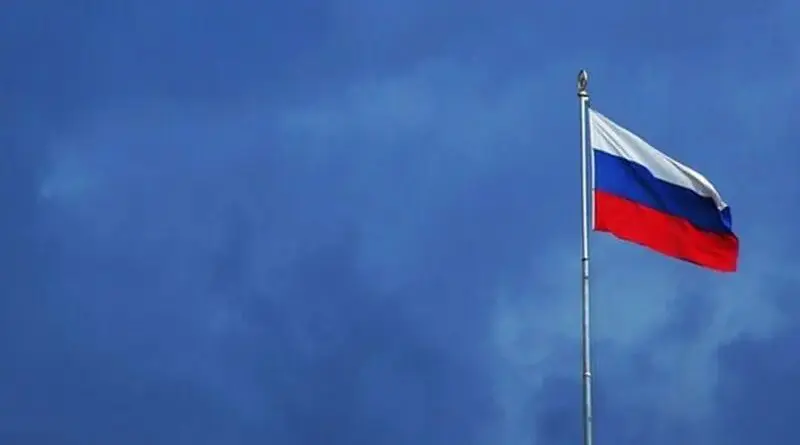Is Primakov Doctrine The Driver Of Russia’s Policies? – OpEd
Russia is a riddle wrapped in mystery inside enigma — Winston Churchill
Western security analysts have misinterpreted Russia’s hybrid warfare capabilities and its post-Soviet era foreign and defense policy basic document. Russia is complex to understand. Churchill is right here again.
After the Cold War, the Russia Federation went for an interstate conflict by annexing Crimea peninsula in 2014. It turned Russia and USA (or the West and Russia) into a bitter standoff. Due to this, the Western have focused a great deal of attention to the Russia “hybrid warfare,” or gray zone operations capabilities.
The notion of hybrid warfare has been associated with Russia’s current chief of the general staff, General Valery Gerasimov. In 2013, he has outlined the key issues of Russia national security which is known as Gerasimov Doctrine. He infused the concept of soft power and hard power, and in simple term it is a permanent conflict doctrine. The Russia seizure of Crimea and its covert operations in eastern Europe played an important role in its hybrid warfare and entire military units.
Western security experts analyzed the whole drama very badly. They interpreted it as the Gerasimov Doctrine is the main driver behind the Russian foreign and defense policy. This impression is totally wrong. The actual doctrine behind this for more than two decades is the Primakov Doctrine.
The Primakov Doctrine, named after the former foreign and prime minister Yevgeny Primakov, has been running the Russia’s external affairs since two decades. It was introduced during 1996. This doctrine mainly evolves around that Russia should strive for a multipolar world managed by the agreement of major powers. among them is China, Russia, India and United States of America. To bring the Western (or the American) unilateral hegemony on world’s affairs down to knee. This is not to be done single-handedly, but by the concert of major powers. As such, NATO’s expansion is not tolerated.
The Primakov Doctrine is antithesis to the Soviet foreign policy of accommodation with the West outlined by Mikhail Gorbachev—the last administrator of the Soviet Union. Russia has stayed by this doctrine since 1999 when Primakov decided to cancel the visit to Washington in the mid-air and order his pilot to fly back to Moscow due to the North Atlantic Treaty Organization’s (NATO’s) bombardment of Serbia.
Military power is a necessary enabler of hybrid warfare. By hybrid warfare instruments some risks can rise. To control all these risks are costly or impractical. But the military power is always in the background. The nuclear nukes are the ultimate source of national sovereignty. Russia uses its hybrid warfare and military power—against Georgia in 2008, Ukraine since 2014 and Syria since 2015.
Georgia is a priority vicinity under the Primakov Doctrine, the Russian front yard, its borders the troublesome in the North Caucasus region and remained open for hostile powers to exploit the key weakness of Russia. Due to the promise by Western to grand access to NATO and looking to Russia vulnerabilities, U.S. decided to promote democracy as a tool to disrupt the region. It have troubled the Russian and Russia pursued gun-boat diplomacy and in a pre-emptive strike and defeated Georgia badly.
In 2014 Russia opened a new chapter from the old book; the Primakov Doctrine. The annexation of Crimea and undeclared war in the eastern Europe Ukraine. Again it can be explained through Primakov Doctrine. Russia played it more amazingly by using both hybrid warfare by using information and misinformation and proxies and in the background a leviathan of hard power; the main military power. Ukraine is very vital. It is in the Russia sphere of influence. There is zero chance for compromise over it.
Here is another case. The Syrian deployment case. Russia after the Cold War emerged as like the world’s leading power in 2015. Due to the Primakov Doctrine, Russia went out of its comfort zone. Entered into the Middle East complex politics. Russia intervened to prevent U.S.-sponsored regime change, behaving like major power, and checking the Washington’s unilateral ambitions.
Now what is next? This is quite complex. But the Primakov Doctrine is inextricably interlinked with Vladimir Putin. The president Putin has the past experience and know how to orient to the contemporary realpolitik. John J. Mearsheimer praised Putin as the world first class strategist. Mr. Putin can manage. But, how can the new leadership adjust the mainland of Russia and its international politics by keeping the Primakov Doctrine in mind?
*Mujeeb Ullah has degree in International Politics and is based in Islamabad.

